It’s not easy to heal from PTSD. In fact, it can be downright impossible. But what if the person who caused your PTSD was also the person you depended on most? What if that person was your parent? It can be incredibly difficult to overcome the trauma that is inflicted by the people we should be able to trust the most. But it is possible. In this blog post, we will discuss how to heal from PTSD caused by your parents and finally start living a happy life!
Contents
Defining PTSD From Parents
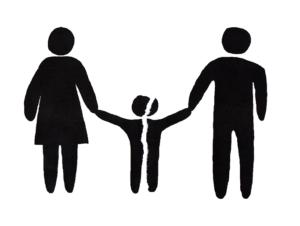 PTSD, or so known as post-traumatic stress disorder, is a mental health condition that is triggered by a terrifying event. It can result from combat, natural disasters, car accidents, or anything else that causes physical harm or death. PTSD symptoms may include flashbacks, nightmares, severe anxiety, and dissociation. For children who experience abuse from their parents – whether it be emotional, physical, sexual, or neglectful – the trauma can be just as real and the PTSD symptoms just as debilitating.
PTSD, or so known as post-traumatic stress disorder, is a mental health condition that is triggered by a terrifying event. It can result from combat, natural disasters, car accidents, or anything else that causes physical harm or death. PTSD symptoms may include flashbacks, nightmares, severe anxiety, and dissociation. For children who experience abuse from their parents – whether it be emotional, physical, sexual, or neglectful – the trauma can be just as real and the PTSD symptoms just as debilitating.
It is an unfortunate reality that sometimes, parents are the ones who cause their children the most harm. But it is important to remember that abuse is never the child’s fault. No one deserves to be treated with violence or cruelty, no matter how young they are. Unfortunately, children who grow up in abusive households often blame themselves for the abuse. They may think that if they had only been better, or if they had only done what their parents wanted, the abuse would have never happened. This is not true. Abuse is always the fault of the abuser, never the victim.
PTSD from parents is one of the most difficult types of trauma to heal from. This is because, in addition to the physical and emotional damage caused by the abuse, there is also the damage caused by the betrayal of trust. When the people who are supposed to love and protect us hurt us instead, it can be incredibly difficult to recover. But it is possible. With time, patience, and professional help, you can heal the wounds inflicted by your parents and finally start living a happy, healthy life.
How Do Parents Cause PTSD?
There is a famous quote that says “all children deserve parents but not all parents deserve children”. This is a rather hard-hitting statement but unfortunately, it is often true. There are many parents out there who simply should not be responsible for the care of a child. These parents may be emotionally unstable, mentally ill, substance abusers, or simply abusive. Regardless of the reason, parents who cause their children PTSD are not fit to be parents. PTSD from parents can be caused by many different things. The most common examples are as follows.
Abuse
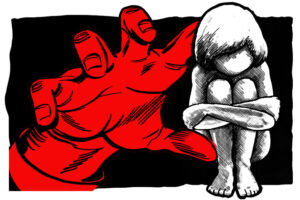 Abuse is one of the most unfortunate and common examples of how parents can cause their children PTSD. Basically, abuse means inflicting physical, emotional, or sexual harm on another person. Unfortunately, children are often the victims of abuse because they are small and vulnerable. They depend on their parents for everything and this makes them easy targets for abuse. If you were abused by your parents, know that it was not your fault and that you can get help. Some ways that abuse manifests itself in children are as follows.
Abuse is one of the most unfortunate and common examples of how parents can cause their children PTSD. Basically, abuse means inflicting physical, emotional, or sexual harm on another person. Unfortunately, children are often the victims of abuse because they are small and vulnerable. They depend on their parents for everything and this makes them easy targets for abuse. If you were abused by your parents, know that it was not your fault and that you can get help. Some ways that abuse manifests itself in children are as follows.
- Physical abuse: This includes hitting, kicking, burning, or otherwise causing physical harm to a child.
- Emotional abuse: This includes yelling, name-calling, making threats, gaslighting, or otherwise causing emotional harm to a child.
- Sexual abuse: This includes any sexual contact between an adult and a child. This can range from rape to simply touching a child in a sexual way.
- Financial abuse: This includes using a child’s money without their permission, refusing to give a child money, or otherwise manipulating a child financially.
Abuse can leave children feeling scared, alone, and helpless. It can also cause physical injuries that may require medical attention. If you were abused by your parents, it is important to get help as soon as possible.
Neglect or absenteeism
Neglect is another form of abuse that is often overlooked. This occurs when a parent fails to provide their child with the basic necessities of life. This can include food, shelter, clothing, medical care, and love. Unfortunately, many children suffer from neglectful parents. If you were neglected by your parents, know that it was not your fault and that you can get help.
Similar to neglect is another form of abuse called absenteeism. Absenteeism occurs when a parent is physically present but emotionally absent. This means that the parent is there in body but not in mind. They may be preoccupied with work, drugs, alcohol, or simply their own lives. As a result, they are not able to provide their children with the love and attention they need.
Rejection
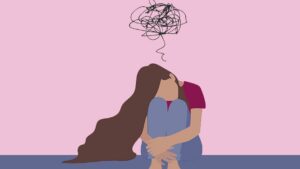 Rejection is another form of abuse that can cause PTSD in children. It occurs when a parent rejects their child either emotionally or physically. This can mean anything from ignoring the child to actively pushing them away. Rejection can be just as damaging as any other form of abuse.
Rejection is another form of abuse that can cause PTSD in children. It occurs when a parent rejects their child either emotionally or physically. This can mean anything from ignoring the child to actively pushing them away. Rejection can be just as damaging as any other form of abuse.
Rejection may take many forms. For example, if you were told by your parents that you were worthless or unlovable, this would be emotional rejection. If your parents never wanted to spend time with you or if they always made you feel like a burden, this would be physical rejection. Some parents may even reject their children on the basis of their sexuality or gender identity. Research stated that “LGBTQ+ youth who experience parental rejection are more than eight times as likely to have attempted suicide”.
As humans, it is only natural for a child to want the love and approval of their parents. When this is not forthcoming, it can be very damaging. If you were rejected by your parents, know that it was not your fault and that you can get help.
Control
Control is a very subjective and relative term. In this context, control refers to a parent who tries to control every aspect of their child’s life. This can be done for many reasons but the most common is that the parent is trying to protect their child from harm. Unfortunately, this often has the opposite effect and ends up causing more harm than good.
A controlling parent may try to control their child’s thoughts, emotions, and actions. They may tell their child what to think, how to feel, and what to do. They may try to control their child’s friends, clothes, school, and even their own thoughts and feelings. This can be very damaging to a child as it can cause them to feel suffocated
Favoritism
This is more evident in the children who grow up with siblings or more than one child in the family. When a parent shows favoritism towards one child over another, it can be very damaging. The favored child may feel like they are better than their siblings or that they are the only one who matters to their parent. The other children may feel like they are not good enough or that they do not matter to their parent. This can cause a lot of conflict and resentment within the family.
It can consequent to the development of low self-esteem, anxiety, and depression in children who are not favored. The long-pending emotional and mental scars can even result in them developing PTSD later in life. If you grew up with a parent who showed favoritism, it is important to understand that it was not your fault. Your parent was the one who made the decision to play favorites and you cannot change that.
Comparisons
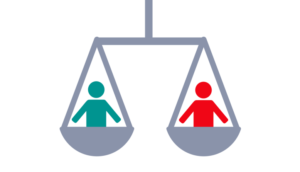 Comparisons are a rather inevitable part of growing up. Parents often compare their children to other kids, either in the family or outside. This can be done for many reasons but most often it is because the parent is trying to motivate the child. Unfortunately, comparisons often have the opposite effect and end up causing more harm than good.
Comparisons are a rather inevitable part of growing up. Parents often compare their children to other kids, either in the family or outside. This can be done for many reasons but most often it is because the parent is trying to motivate the child. Unfortunately, comparisons often have the opposite effect and end up causing more harm than good.
When a child is constantly being compared to others, they may start to believe that they are not good enough. They may feel like they can never please their parent or that they will never be good enough. This can lead to a lot of insecurity and self-doubt. It can also cause the child to develop PTSD later in life. It may also cause an identity crisis, which is another form of mental illness. If you were constantly compared to others by your parents, it is important to understand that it was not your fault.
Lack of support
As children, it is very important to have the support of our parents. This is especially true during tough times. When we are going through something difficult, it is our parents who we turn to for help and support. Unfortunately, not all parents are able to provide this support. Some parents may be too busy or too wrapped up in their own lives to be there for their children. Others may simply not know how to provide support. This can be very damaging to a child as they may feel like they are alone in the world.
For example, a child who is being bullied at school may not have anyone to turn to for help. They may feel like they are all alone and that no one cares about them. This can lead to the development of PTSD later in life. If you did not have the support of your parents when you were growing up, it is important to understand that it was not your fault. You can get help from other people who care about you.
Conflict
If the parents are constantly fighting with each other, it can be very damaging to the children. They may feel like they are caught in the middle of the conflict and that they have to choose sides. This can lead to a lot of anxiety and stress. It can also cause the child to develop PTSD later in life. For example, if one of the parents has an extra-marital affair, the child may feel like they have to choose between their parents. This can be a very difficult and stressful situation for a child to deal with. Some other examples of parental conflict that cause stress for children include:
- parent’s financial problems
- parents getting a divorce
- step-parents coming into the picture
If you grew up in a household that was full of conflict, it is important to understand that it was not your fault. You can get help from other people who care about you.
Parents having chronic illnesses
Lastly, if your parent(s) suffer from chronic illnesses, it can be very difficult for you as a child. You may feel like you have to take care of them and that you are responsible for their well-being. This can be a lot of pressure for a child to deal with and can lead to the development of PTSD later in life. Some examples of such illnesses can include:
- Cancer
- Mobility issues
- Alzheimer’s disease
- Parkinson’s disease
- Addictions
- Personality disorders
- Depression
- Obsessive-compulsive disorder (OCD)
All these disorders can make it difficult for parents to be there for their children the way they should be. As a result, children may feel like they have to take on more responsibility than they are ready for.
It is important to understand that none of these things are your fault. You can’t control how your parents treat you but you can control how you react to it. You can choose to let it break you or you can choose to let it make you stronger. It is up to you. If you are struggling, please reach out for help. There are people who care about you and want to help you!
What Are The Consequences?
PTSD in itself can have a lot of consequences. It can cause problems in a large majority of someone’s life.
Physiological
It is no secret that mental illnesses also have physical consequences. PTSD is no different. It can cause a lot of problems physically. For example, it can lead to:
- Chronic pain
- Digestive issues
- Migraines
- Chest pains
- Cardiovascular issues
- Sleep disorders
- Headaches
- Fatigue
All of these things can make it difficult for someone to function in their everyday life.
Psychological
The dangers of PTSD are not just physical. It can also lead to a lot of psychological problems. For example, it can cause:

- Anxiety
- Depression
- Personality changes
- Obsessive-compulsive disorder (OCD)
- Anger management problems
- Substance abuse
- Eating disorders
- Nightmares
These can further complicate someone’s life and make it difficult for them to function on a day-to-day basis.
Cognitive
Cognition is the ability to think, learn, and remember. PTSD can also cause problems with cognition. For example, it can lead to:
- Memory problems
- Trouble concentrating
- Brain fog
- Loss of creativity
- Difficulty multitasking
- Trouble learning new things
- Poor decision-making skills
All of these things can make it difficult for someone to live their life the way they want to.
Behavioral
Because of trauma, a person’s behaviors and ways of thinking can change. For example, they may:
- Avoid people or places that remind them of the trauma
- Loss of interest in things that used to be important to you
- Isolate themselves from others
- Constantly stay on edge
- Not maintaining hygiene
- Procrastinate
- Experience a change in their sexual behaviors
- Engage in risky behaviors
- Develop new phobias
- Have outbursts of anger
- Behave impulsively
All of these things can make it difficult for someone to live a normal life.
Emotional

Trauma and emotions go hand-in-hand. It is no surprise that PTSD can cause a lot of emotional problems. For example, it can lead to:
- Anxious thoughts
- Rumination
- Constant fear
- Intrusive thoughts
- Mood swings
- Hypervigilance
- Anger
- Regret
- Guilt
- Shame
- Emotional numbing
- Hopelessness
All of these things can make it difficult for someone to feel like they are living their best life.
Social
Lastly, the social effects of PTSD can be devastating. For example, it can lead to:
- Loss of friends
- Loss of support
- Isolation
- Difficulty maintaining clear communication
- Problems at work
- Problems in school
- Financial instability
All of these things can make it difficult for someone to feel like they are a part of society.
PTSD can have a profound effect on every aspect of someone’s life. It is important to understand that if you are struggling, you are not alone. There is help available. Don’t be afraid to reach out for it.
How To Overcome PTSD From Parents?
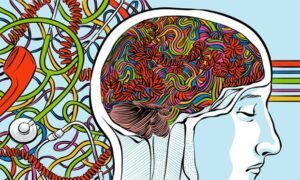
The scars of our past can sometimes feel like they will never heal. But it is important to remember that we are not our trauma. We are so much more than that. There are a lot of ways to begin the healing process. Here are a few:
- Talk to a therapist: A therapist can help you work through your trauma in a safe and healthy way. They can also help you develop coping mechanisms for when you are feeling triggered.
- Join a support group: There are often groups available to help people who have experienced similar traumas. This can be a great way to feel connected to others and to know that you are not alone.
- Write about your experiences: Writing can be a therapeutic way to process your trauma. It can help you to make sense of what happened and to begin the healing process.
- Practice inner-child work: This involves going back and giving yourself the love and care that you needed when you were a child. This can be a difficult but important process.
- Practice affirmations: Affirmations can help to change the negative thought patterns that often accompany trauma. For people with PTSD, affirmations can be a powerful tool. Some examples include “I am safe,” “I am loved,” and “I am worthy.”
- Find a creative outlet: Creativity can be a great way to express yourself and to work through your trauma. It can also be a source of joy and healing. You may do activities like painting, drawing, writing, or music.
- Engage in self-care: It is important to take care of yourself both physically and emotionally. This includes things like exercise, healthy eating, relaxation, as well as getting enough sleep.
- Learn to forgive but not forget: Forgiving those who have hurt you can be a difficult but important part of the healing process. It is important to remember that forgiving does not mean forgetting. You can still hold them accountable for their actions.
- Form your own identity: One of the most important things you can do is to form your own identity. This includes finding out who you are outside of your trauma. You may also have a “chosen family”. This is a concept where you choose the people you want to be in your life. This can be a great way to create positive and supportive relationships.
All of these things can help you to begin the healing process of PTSD from parents. Healing from trauma is a journey. It will take time, effort, and patience. But it is possible. You are strong enough to do this. You are worth it. If you are struggling, please reach out for help. There are people who care about your well-being.
Conclusion
PTSD from parents can be a difficult thing to overcome. But it is important to remember that you are not alone. Healing is possible. It may take time, but it is so worth it. Remember that you are not alone on this journey. There are people who care about you and want to help. Reach out for help today!
If you or someone you know is struggling, Therapy Mantra is here for you. We are the leading providers of online therapy and counseling. Our team of highly trained and experienced therapists can help you work through your emotions and find peace. Contact us today to learn more about our services. You may also visit our website to book an online therapy session or download our free Android or iOS app for more information.


